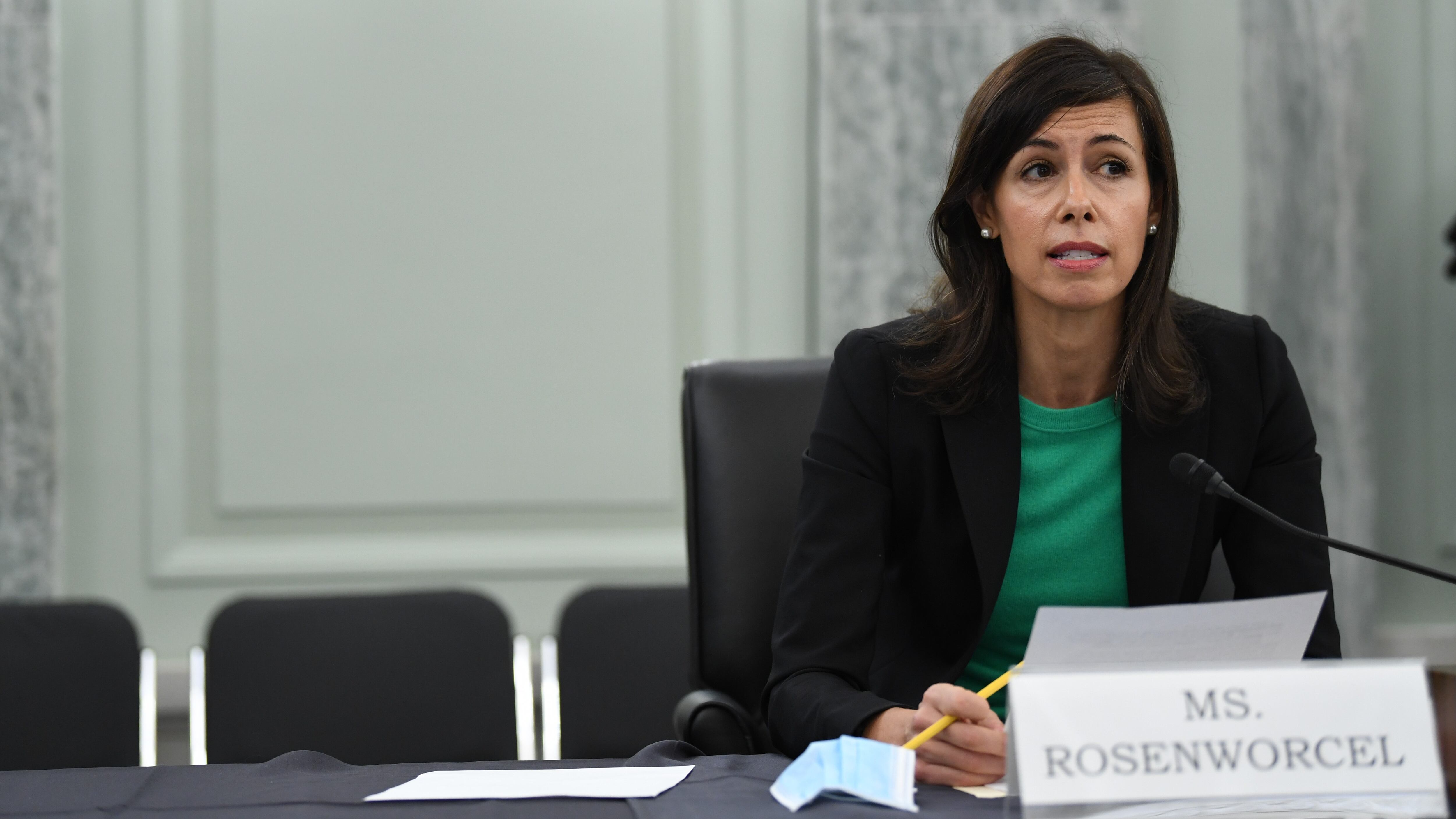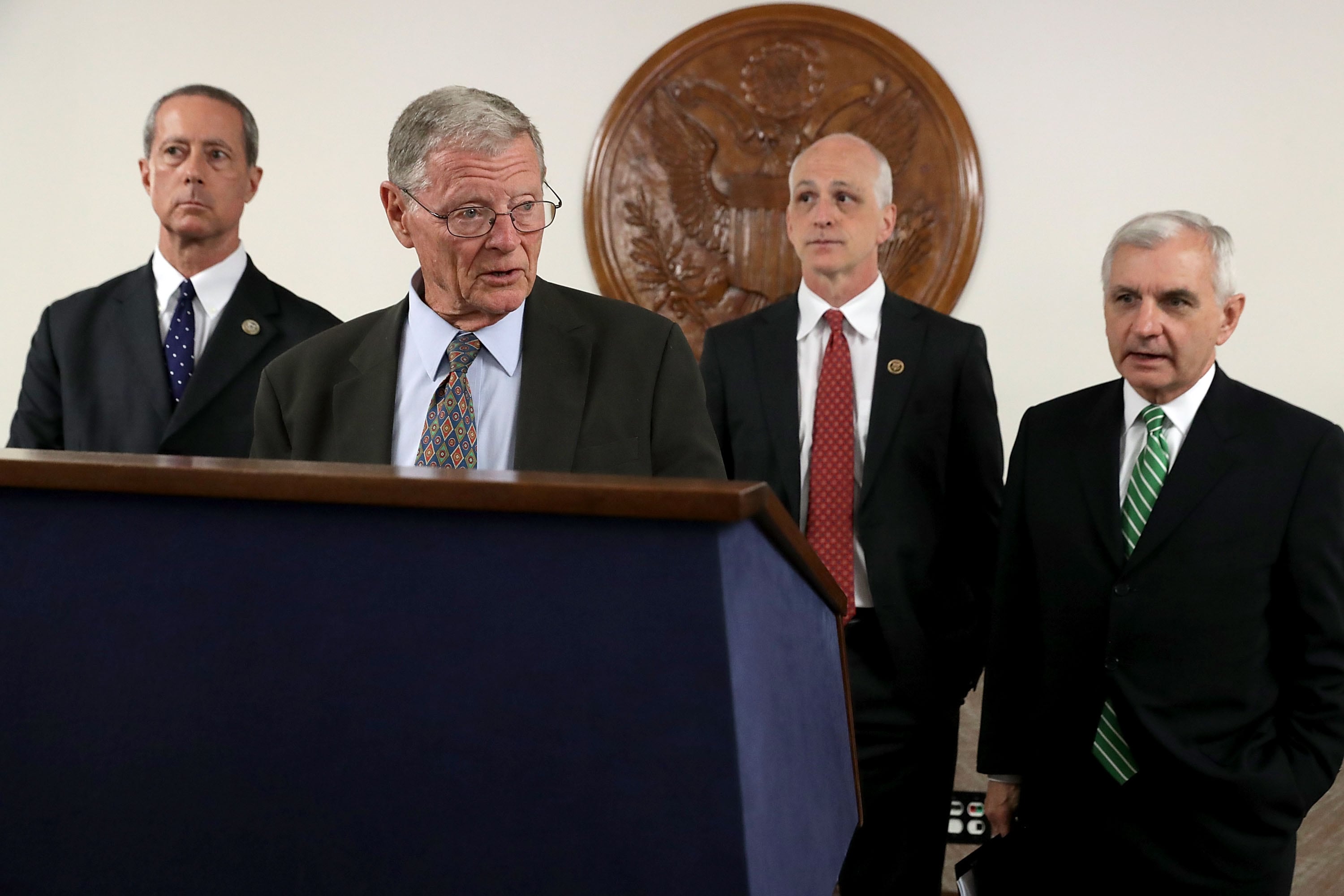By now it shouldn’t be any surprise that I oppose the decision by the Federal Communications Commission to approve Ligado Networks’ application to repurpose low-band spectrum for a terrestrial commercial network that will interfere with GPS and satellite communications signals.
What is surprising, however, is that after my push to dispel the Ligado lies, Ligado still has investors willing to bet big on them.
In October, the Wall Street Journal reported that Ligado, which went bankrupt in 2012 after a failed effort to repurpose its spectrum, needed to refinance $4 billion in debt to prevent bankruptcy, and gave plum offerings and high returns to hedge fund investors to do so. Having survived one bankruptcy, Ligado will do anything to make sure its Wall Street hedge fund and private equity investors make money — even when it would jeopardize the signals supporting our national and economic security that Americans rely on every day.
Ligado has an agenda — and it’s a scary one. Just think about what activities GPS and satellite communications signals support across the nation. Our troops rely on them for equipment used on the battlefield, farmers rely on them to harvest their crops, and truckers and airlines rely on them to move supplies and people safely; the list goes on and on.
RELATED

Since its decision, made on a Sunday in April, I’ve been sounding the alarm, and Ligado has been spending tons of cash on lobbyists to try and silence me. So far in 2020, Ligado has spent more than $3 million to lobby members of Congress. And while it has been busy trying to block my efforts to undo the FCC’s decision, my expectation is that Ligado has not communicated to its investors the massive risks they face.
That’s why I’m writing here. For anyone considering an investment in Ligado, I have a free piece of advice: buyer beware.
Sure, the FCC approved the Ligado order back in April, but there are eight separate petitions to reconsider the order pending right now. They are signed by 22 private sector organizations and 14 federal agencies represented by the National Telecommunications and Information Administration, or NTIA. I believe these petitions will be successful in completely repealing Ligado’s permission slip to create interference. Even if they are not, there are three additional strikes that should make any investor fear for their investment.
Ligado’s plan will be detrimental to our nation’s GPS and everything that relies on it. Ligado has claimed the three major GPS manufacturers (Trimble, Garmin and Deere) support Ligado’s plans, pointing to settlement agreements signed in 2015. In fact, these settlement agreements were to resolve lawsuits filed by Ligado! Each GPS manufacturer has publicly stated its settlement agreement is not an endorsement of what Ligado wants to do, nor can it be used as evidence that Ligado will not cause interference to the GPS devices it manufactures. Strike one.
The Department of Defense has reported it could cost billions to upgrade, repair or replace the equipment and systems impacted by Ligado’s plan, but the DoD does not have the money to do that and it shouldn’t be forced to spend taxpayer money to fix problems Ligado causes. That’s why I authored provisions in this year’s annual defense bill that would make it clear: By law, the DoD will not be on the hook for the damages Ligado causes to its equipment and systems.
RELATED

Furthermore, Ligado — and any other company that may seek to purchase Ligado — is prohibited from contracting with the DoD if they cause interference with the important signals used by the DoD’s equipment and systems. As of this writing, the defense bill has passed both the House and Senate with broad, bipartisan majorities. It will shortly become law. Strike two.
Finally, the Senate confirmed Nathan Simington to the FCC. Simington is the right choice for the FCC. He supports overhauling Section 230 of the Communications Decency Act to end Big Tech’s censorship of conservative voices on social media platforms. He most recently served as an adviser at the NTIA, which has coordinated all the federal agencies’ efforts to articulate the dangers of Ligado’s plan, including in filings with the FCC. He appreciates that in approving the Ligado order in April, the FCC steamrolled over objections from 14 separate government agencies — all responsible for ensuring safety-of-life operations dependent on GPS and satellite communication signals.
Nathan Simington knows the process was broken and will make sure the FCC does a better job of engaging with federal agencies in the future. Strike three for Ligado’s future.
Investors need to decide for themselves if they can trust Ligado’s future viability — but I doubt it has been forthcoming about the reality of what’s happening in Washington. If it has not disclosed these three strikes, what else might it be hiding? Three strikes should be enough to show investors that they shouldn’t trust Ligado with any more capital.
Sen. Jim Inhofe, R-Okla., is chairman of the Senate Armed Services Committee.








